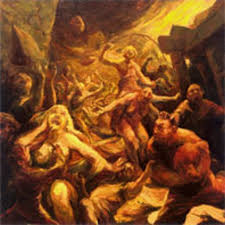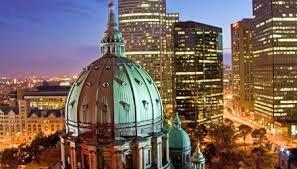Dirty faces and slovenly hairs, torn shorts and some men without shoes. Most of them sitting on the ground full of dirt. Others having fun watching how dogs copulated. These were the scenes I encountered in Vietnam—the worst section of “La Victoria” Penitentiary in Santo Domingo, Dominican Republic. 
We walked through the basketball court, Jaime, Barahona and I. It was in terrible condition and there were guys drying wet clothes on hang-lines and on courtyard roof-tops after washing them in buckets full of water.
Some men, the ones that could afford the daily food rations, had the option of strolling the basketball court for half an hour, or more. They did it without a care for the stench, neither the swarm of flies nor the rats on piles of dump.
Jaime asked me if I was “in” for drugs and when I answered yes, his response didn’t alleviate me in the least. He said I could be facing at least 20 years in that “hell-pit” and that there was a judge by the name of Severino who was ruthless in his sentencing. One “joint” of marijuana could earn you at least 5 years in the pen.
I looked around all those men without lives, without souls. Would I too become one of them if given an eternal doom? Then when Jaime told me that it would take at least 3 years for a judge to sentence me, I wanted the earth to open up and swallow me. I wanted to die.
The laws in Dominican Republic are very strict and the process too slow. The courts were filled with files waiting to be opened and mobilized. The “50-88” drug law imposed in 1988, made most of the prisons inflated with around 20,000 inmates all over the island, most of them thrown in jail without proof of their innocence. A large percentage were young men living in the most heinous and impoverished conditions imaginable. Who could tolerate such treatment? There was no support of any kind. Meals, medical attention, sanitary practices, all of this was non-existent in that place. Worst yet, the lack of morality, decency, and compassion, by the employees whose only purpose was to do their job with care, did the complete opposite. They conducted themselves like royalty while they treated us like animals.
We continued to walk through a gate that led to a pavilion and into the center of Vietnam. Jaime was right, most of the people knew him and this gave me a sense of security. We walked through a dark passage-way full of “goletas” on either side where more than 500 men resided in deplorable conditions. The human traffic was very impressive, like a crowed town. It took my eyes a few seconds to adapt to the darkness. For an instant I lost the notion of time, thinking that I was drowning in a medieval nightmare without refugee. The bodies were empty as if their souls had lifted into thin air and left them there to rot. Inside the “goleta” were prisoners cooking on rusted pots and the smell of food, marijuana, and cigarette smoke, confused my senses. I could hear different beats bounce off each other as music blasted from dozen radio systems, all clashing with each other at the same time.
We stood in front of a “goleta” where a man had a 5 gallon can on top of a brick stove. Jaime invited us to try homemade ginger tea. The man used to sell it in small plastic cups. It was good, hot and spicy, and I enjoyed it so much that later on I became his most loyal customer. There was noise inside the “goleta” next to the “tea store” and from the corner of my eye I could see men practicing sex with one of the many homosexuals that were there. These men had it rough because most of the time, they would get raped. I later found out that this was part of the daily prostitution business. For 5 dollars, the “trannies” would perform oral sex and for 10 they would go all the way. Most of the homosexuals used to work cutting hair and doing manicures. One of them was Luis, a young man who arrived from Peru with drugs in his stomach. Rumor had it that as soon as he entered prison, he was forced to perform sex with more than 10 guys.
The gang used to make money with them especially on visitation days. The gay population would dress as ladies and they would walk around Hall A looking for customers. At the end of the visits, the gang would collect the money that they had earned.
On this “tour,” the realization of my new existence sunk in. It wasn’t a nightmare. It was my life.
I had been transported to Sodom and Gomorra, a world of sadism, evil, and bestiality.








